AI Strategies 5-22 Panel - Twitter Graphic 230510

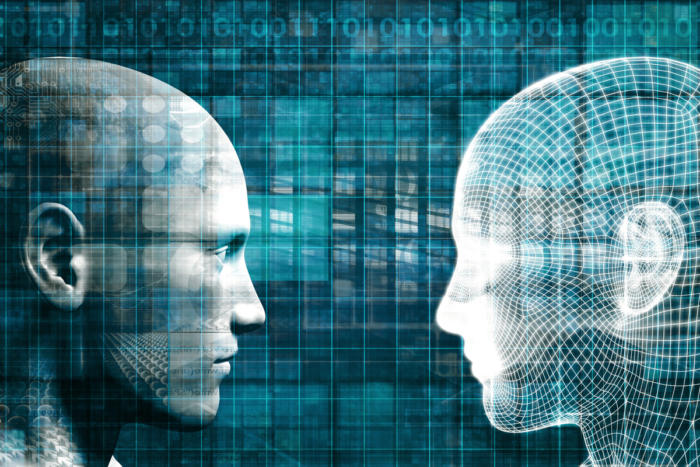
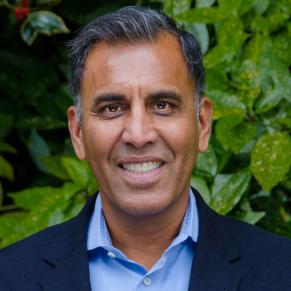 CAHMP faculty and Schar School of Policy and Government professor, J.P. Singh leads a team of researchers from across George Mason University campuses that has been awarded a three-year, $1.39 million grant to study the economic and cultural determinants for global artificial intelligence (AI) infrastructures—and describe their implications for national and international security. The grant was awarded by the Department of Defense’s esteemed Minerva Research Initiative, a joint program of the Office of Basic Research and the Office of Policy that supports social science research focused on expanding basic understanding of security. This project teams consists of a multidisciplinary team of five faculty and four doctoral students. The team’s project, now called “AI Strategies”, kicked off in April 2022. Please find out more information from their project website –AI Strategies.
CAHMP faculty and Schar School of Policy and Government professor, J.P. Singh leads a team of researchers from across George Mason University campuses that has been awarded a three-year, $1.39 million grant to study the economic and cultural determinants for global artificial intelligence (AI) infrastructures—and describe their implications for national and international security. The grant was awarded by the Department of Defense’s esteemed Minerva Research Initiative, a joint program of the Office of Basic Research and the Office of Policy that supports social science research focused on expanding basic understanding of security. This project teams consists of a multidisciplinary team of five faculty and four doctoral students. The team’s project, now called “AI Strategies”, kicked off in April 2022. Please find out more information from their project website –AI Strategies.
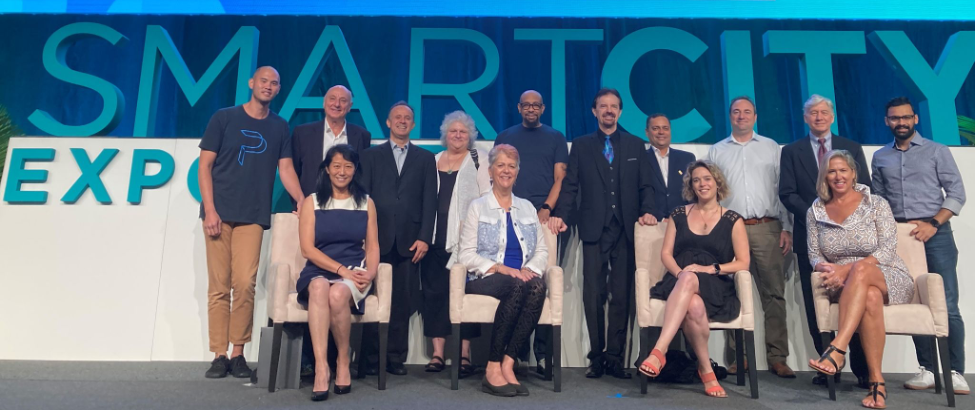

Global City Teams Challenge: Strategic Planning Workshop Working Group Series
Project Investigators
CAHMP Co-directors, Brenda Bannan (Principal Investigator) & Dave Lattanzi (Co-Principal Investigator) (2022) lead Global City Teams Challenge Strategic Planning Workshop Working Group Series, sponsored by National Institute for Standards and Technology (NIST). The CAHMP team submitted the proposal in March, 2022 and was awarded $89,390 over one year.
In 2022, the National Institute of Standards and Technology (NIST) awarded funding to George Mason University (GMU) to conduct a two-part workshop series to develop an integrated and supportive community-centric strategy to inform, strengthen and expand the Global Community Technology Consortium (formerly the Global City Teams Challenge) (GCTC) program, in an effort to facilitate and enhance smart and connected communities technology research, development and application.
In early August of 2022, the GCTC leadership convened in Arlington, Virginia, at Mason Square on GMU’s Arlington campus as the first workshop meeting in a two-part series. This first workshop, sponsored by the Center for Advancing Human-Machine Partnerships (CAHMP) at GMU and organized by Dr. Brenda Bannan, was designed to establish a strategic research vision for the GCTC. The workshop provided the leadership of the twelve SuperClusters, also known as Technology Sectors, an opportunity to better understand how the GCTC interacts with internal and external partners to achieve technology deployment and implementation for the purpose of informing the strategic vision. This workshop was followed by a mid-September workshop sponsored by the City of Coral Gables, Florida, and held in their Public Safety Headquarters Smart Building. Augmenting the findings of the first workshop, the second workshop held was designed to delineate the specific priorities and activities of the strategic plan. The leadership of this organization, including Dr. Bannan, attended the SmartCity Expo USA in Miami, Florida as part of the event.
Synthesized results from this workshop series: 1) inform and guide the strategic directions of the NIST GCTC organization to benefit communities and the public related to advanced cyber-physical technologies; and 2) yield insights into the complex and interdependent challenges of disseminating and implementing technology in the smart and connected communities vision.
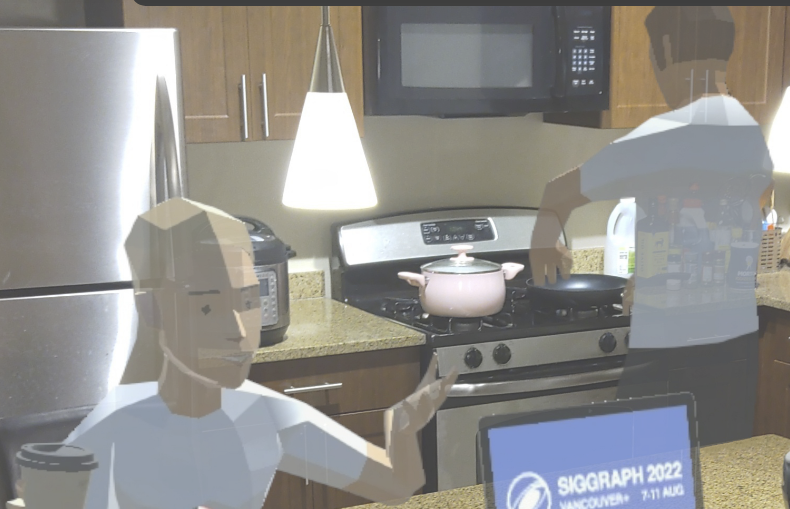
Recently, CAHMP faculty, Dr. Craig Yu, is involved in a group researchers that present a novel interactive augmented reality (AR) storytelling approach guided by indoor scene semantics.
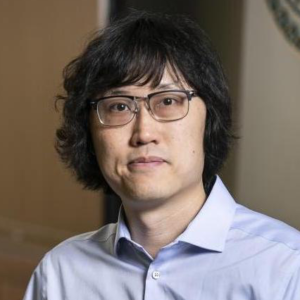
Their approach automatically populates virtual contents in real-world environments to deliver AR stories, which match both the story plots and scene semantics. During the storytelling process, a player can participate as a character in the story. Meanwhile, the behaviors of the virtual characters and the placement of the virtual items adapt to the player’s actions. An input raw story is represented as a sequence of events, which contain high-level descriptions of the characters’ states, and is converted into a graph representation with automatically supplemented low-level spatial details.
Their hierarchical story sampling approach samples realistic character behaviors that fit the story contexts through optimizations; and an animator, which estimates and prioritizes the player’s actions, animates the virtual characters to tell the story in AR. Through experiments and a user study, they validated the effectiveness of the approach for AR storytelling in different environments.
For more information about this project, please click here.
Also see Craig’s work in assistive robotics here.
Congratulations to our winning teams:
1st Place Winner – Team “Reach” – Brenda Henriquez, Andi Motas and Leela Yaddanapudi
2nd Place Winner – Team “Play Out Sports” – Janit Bidhan, Sreenivasa Rayaprolu
3rd Place Winner – Team “DigiMicro” – Kanwal Ahmad, Ebtesam Al Haque, and Akshath Phillips (not all names are included here)
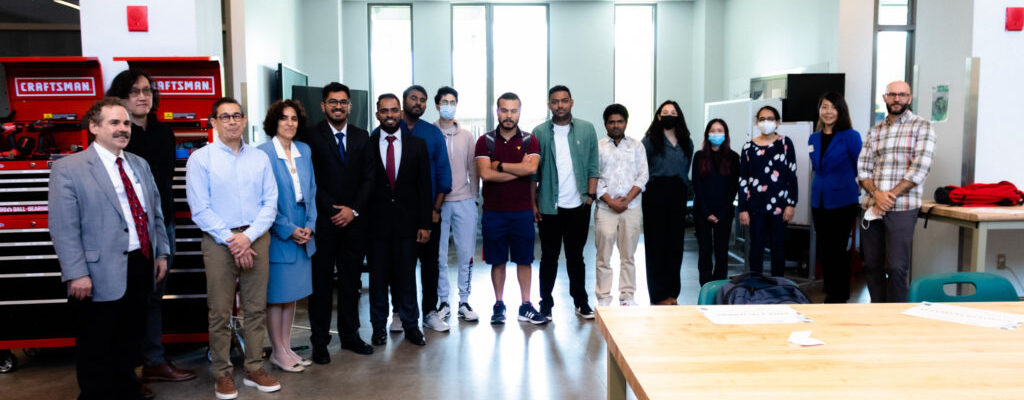
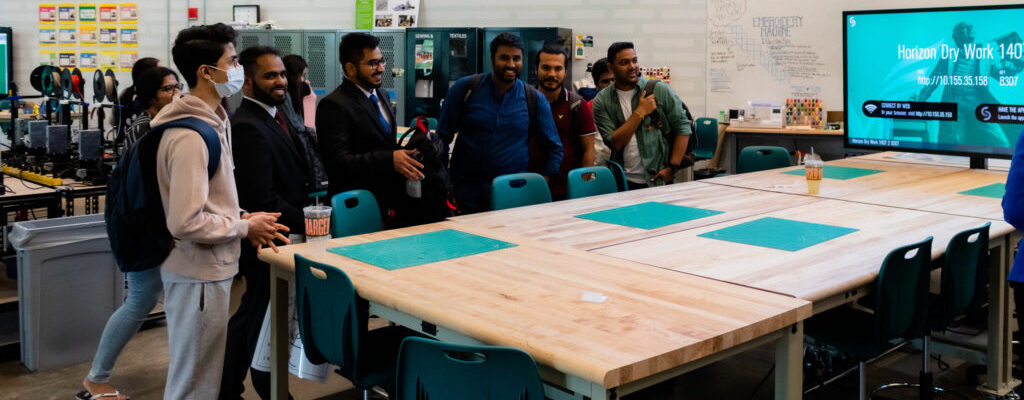
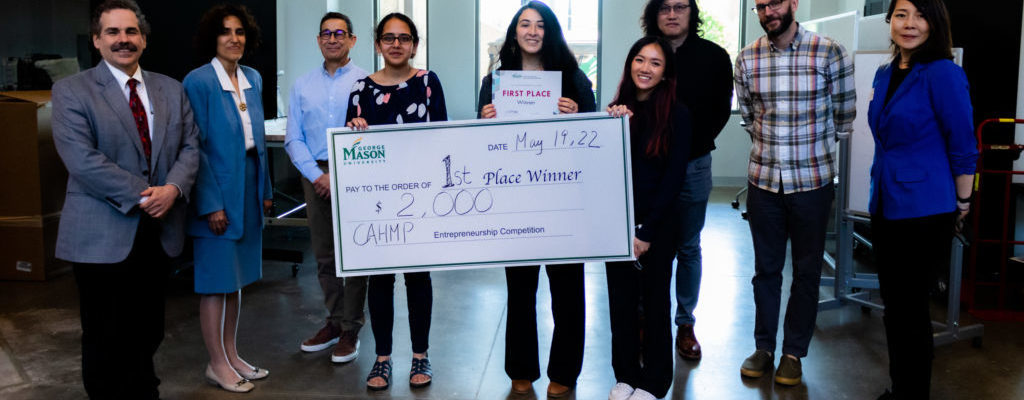
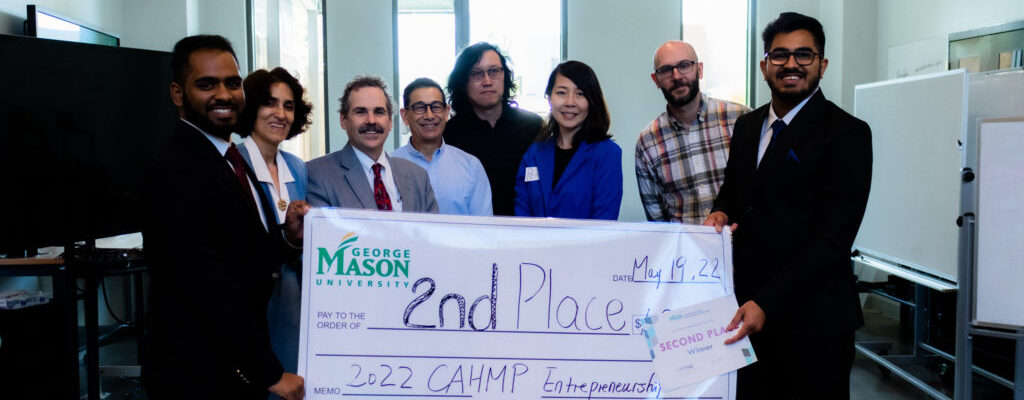
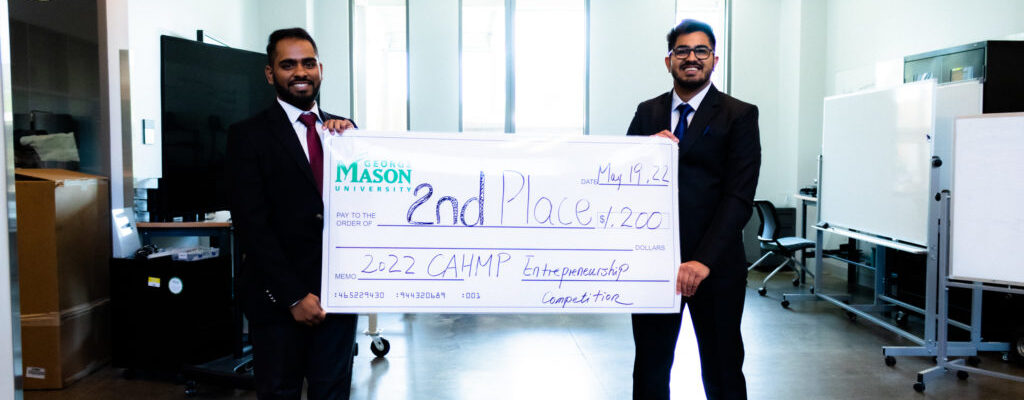
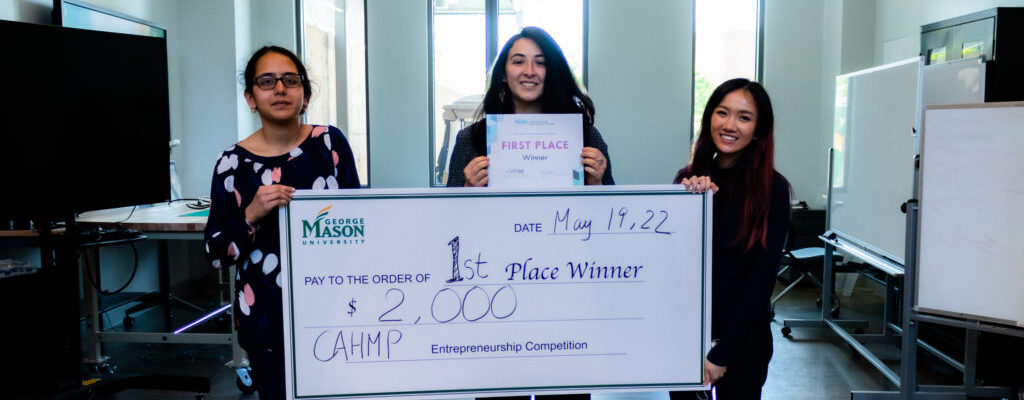
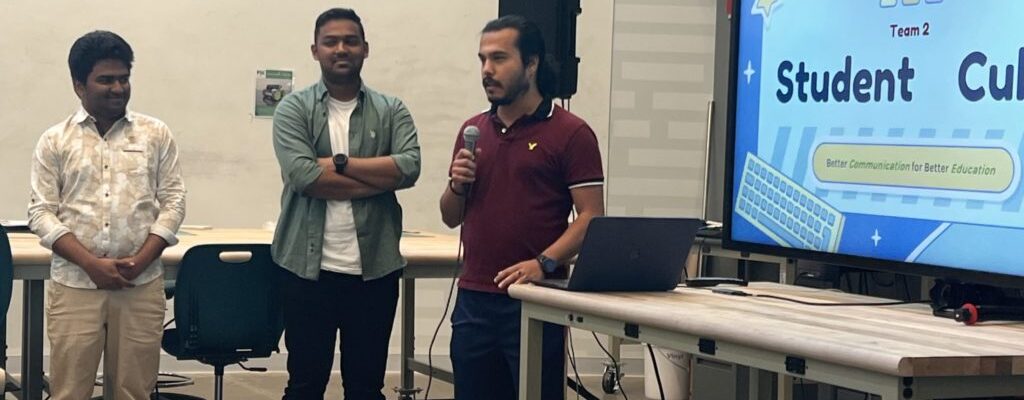
Our entrepreneurship program supports students’ startup interest in the area around humans, machines and artificial intelligence. Cross disciplinary teams are highly encouraged. Please check out the program details below:
| Time & Location | Event Agenda |
Team Presentation Description |
| 2/18 (Friday) noon @ MIX Room 2107 |
|
Kick-off Presentation should be no more than 3 minutes and focus on a general introduction of your business idea, what problem you want to solve and your team members. |
| 3/4(Friday) noon @ MIX Room 2107 |
|
Market research presentation should be no more than 3 minutes and should be a summary of business analysis of a competitor using the “Business Model Canvas” template. |
| 3/17 (Thursday) 11am |
|
Discussion and questions on market research. |
| 3/18 (Friday) 11am |
|
Discussion and questions on market research. |
| 3/31 (Thursday) noon |
|
Customer discovery presentation should be no more than 3 minutes and focus on your customer discovery findings (including how you identify your customer, main interview questions, the customers’ pain points and potential value proposition of your business). |
| 4/15 (Friday) noon |
|
Discussion and questions on customers’ pain points and ways in which your product’s value propositions address those pain points. |
| 4/29 (Friday) noon |
|
Discussion and questions on customers’ pain points and ways in which your product’s value propositions address those pain points, and final pitch presentations. |
| 5/6 (Friday) noon |
|
Teams will need to submit an outline of your final presentation (or draft presentation) before this meeting. We will provide one-on-one team feedback after the featured speaker talk. Please refer to Final Presentation Guidelines below. Teams should post your outline or draft in your designated and private MS Teams space. |
| 5/13 (Friday) noon |
|
Provide feedback to team’s presentation draft. |
| 5/19 (Thursday) 1:30 – 3:30pm @ MIX The MakerSpace |
|
Final Presentation Guidelines:
|
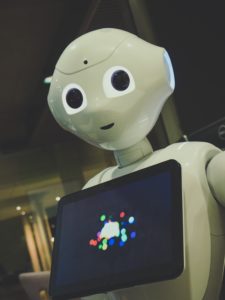 Frequently Asked Questions:
Frequently Asked Questions: 1. How many members can be on a team? We highly recommend a team of 3 or less. A smaller team allows all members to contribute evenly and will give members the most chances to learn and engage with our program. Besides, according to start-up experts, most businesses started with a small team which is more agile and adaptive than larger teams. (Exceptions of larger teams are allowed for this program. Please keep in mind, awards are all team-based.)
2. What does joining the program look like? There will be three monthly meetings with team presentations, educational content, and guest speakers (see the timeline above). There will also be a final competition presentation later in May. Teams are expected to collaborate on their own and engage with their mentors in between the monthly meetings. There are no mandatory assignments or hours required to participate. Teams are encouraged to find the pace and methods that work best for them.
Three teams will be selected for Gold, Silver and Bronze. Award prizes are as follows:
While it will be important you present a viable business idea (no prototype required) at the final presentation, the judges will also consider how your team work together (including how you overcome obstacles), what you’ve learned, and how you get to where you are. Important: even if you decide in the end your original business idea is non-viable, you can still win the competition by showing how you came to that conclusion. While you would not be a candidate for I-Corps without a viable business, you would maintain eligibility for I-Corps, in case you decide to pursue a business idea in the future.
Yes, a mentor is critically important in your learning and success in this program. Please seek out individuals who have entrepreneurial experience or the technical expertise associated with your team’s business focus. It can be Mason faculty or non-Mason personnel.
All current Mason students (undergraduate and graduate) are eligible. A non-Mason student can participate as a collaborator but will not be eligible for awards.
https://steveblank.com/tools-and-blogs-for-entrepreneurs/
CAHMP Contact: Peng Warweg pwarweg@gmu.edu
